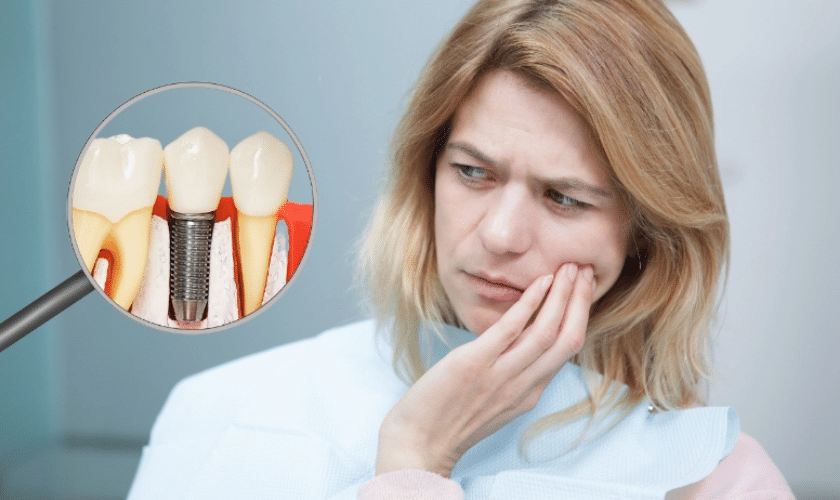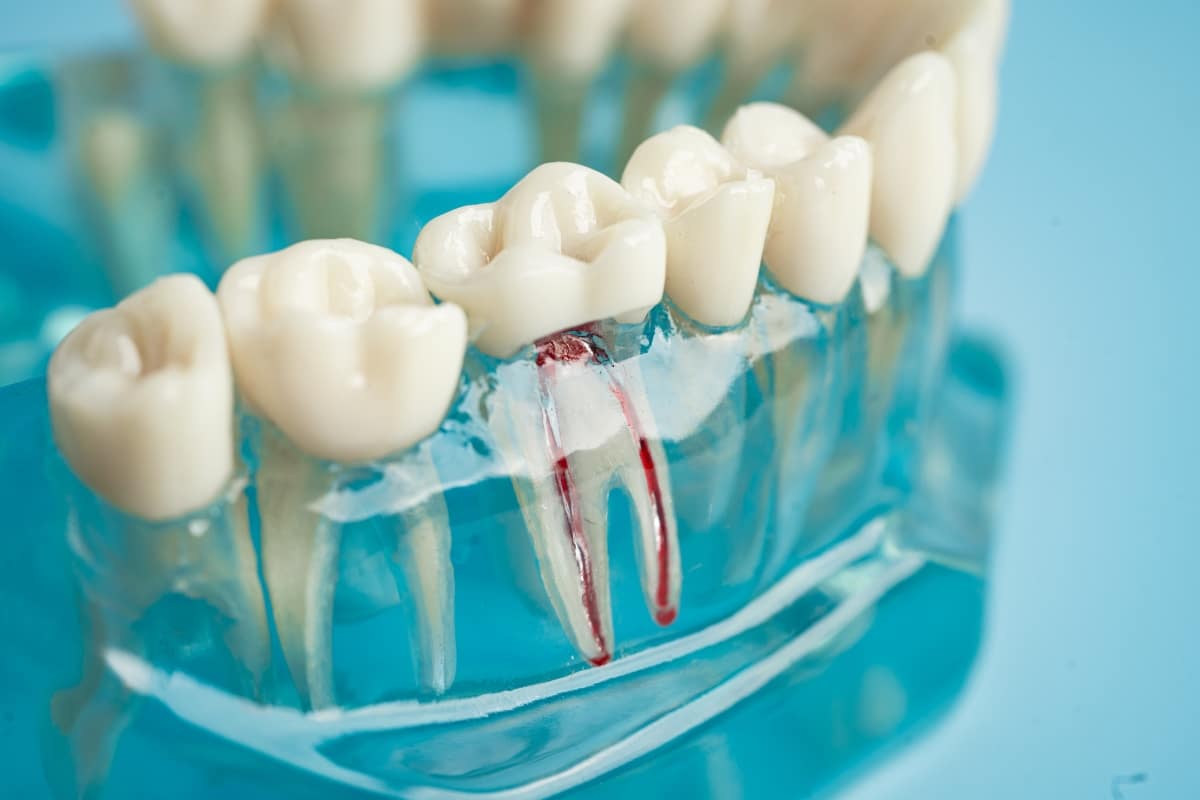Same-day treatments are available.
How To Relieve Pain From Dental Implants

Dental implants are a fantastic innovation in modern dentistry, offering a permanent and natural-looking solution for missing teeth. However, like any surgery, the placement of dental implants can cause discomfort in the days following the procedure.
This blog aims to be your guide to navigating the post-operative phase and finding relief after dental implant surgery. We’ll explore common causes of discomfort, effective pain management strategies, and helpful tips for a smooth recovery.
Understanding Discomfort After Dental Implants
While dental implant surgery is a routine procedure, it does involve placing a foreign object (the implant screw) into your jawbone. This can naturally lead to some soreness, inflammation, and even minor bleeding. The extent of discomfort you experience can vary depending on several factors, including:
- The complexity of the surgery: More complex procedures involving multiple implants or bone grafting may cause more discomfort.
- Your pain tolerance: Everyone has a different sensitivity to pain.
- Your body’s healing response: Some people heal faster than others.
Effective Strategies for Pain Management
Here are some effective strategies to manage discomfort after dental implant surgery:
Medication:
Your dentist will likely prescribe pain medication to help manage discomfort. It’s crucial to follow your dentist’s instructions regarding dosage and frequency.
Over-the-counter pain relievers:
Over-the-counter pain relievers like ibuprofen or acetaminophen can also help manage mild to moderate pain.
Cold therapy:
Applying an ice pack to the outside of your cheek near the implant site can help reduce swelling and inflammation, which can contribute to discomfort. Apply the ice pack for 15-20 minutes, followed by a break of at least 20 minutes.
Warm salt water rinses:
Gently rinsing your mouth with warm salt water (dissolve half a teaspoon of table salt in a glass of warm water) can help reduce inflammation and promote healing. Start rinsing 24 hours after surgery and continue several times a day for the next few days.
Rest:
Sleeping enough enables your body to concentrate on recovery. For the first several days following surgery, take it easy and steer clear of heavy activities.
Advice for a Painless Post-Dental Implant Recovery
Diet:
Stick to a soft diet for the first few days following surgery. This will minimize pressure on the implant site and make chewing more comfortable. Reintroduce tougher foods gradually as your mouth heals.
Oral hygiene:
Keeping your mouth clean is essential to warding off infections and encouraging healing. Gently brush your teeth around the implant site with a soft-bristled toothbrush, avoiding the implant itself for the first few days. You can also use a special implant cleaning tool recommended by your dentist.
Avoid irritants:
Avoid smoking, alcohol, and hot beverages, as these can irritate the implant site and hinder healing.
Follow your dentist’s instructions:
Your dentist will provide specific post-operative instructions tailored to your situation. To guarantee a speedy recovery, make sure you carefully follow these recommendations.
When to Call Your Dentist
While some discomfort is expected after dental implant surgery, there are situations where you should contact your dentist right away:
- If the pain is severe and not controlled by medication.
- If the swelling worsens or doesn’t improve after a few days.
- If you experience persistent bleeding.
- If you experience fever or chills.
- If you notice any signs of infection, such as redness, pus, or bad breath.
Cypress Dentist can help!
If you’re considering dental implants or have recently undergone the procedure and are experiencing discomfort, a qualified dentist can guide you through the recovery process and ensure optimal healing. Here in Cypress, we have several experienced and compassionate dentists who specialize in dental implants and can help you achieve a beautiful and healthy smile.
Additional Considerations
While dental implants are a highly successful treatment, it’s important to remember that they are not without risks. Some potential complications associated with dental implants include infection, nerve damage, and sinus problems.
If you’re considering dental implants, consult with a qualified dentist to discuss the potential risks and benefits and determine if they are the right option for you.
Dental implants can dramatically improve your quality of life by restoring your ability to chew, speak, and smile with confidence. By following the tips outlined in this blog and working closely with your dentist, you can minimize discomfort and ensure a smooth recovery after dental implant surgery. Remember, a little discomfort is a small price for a lifetime of beautiful smiles and improved oral health.

7 Foods and Drinks to Avoid After Professional Teeth Whitening in Cypress

What to Expect After a Root Canal Treatment in Cypress



